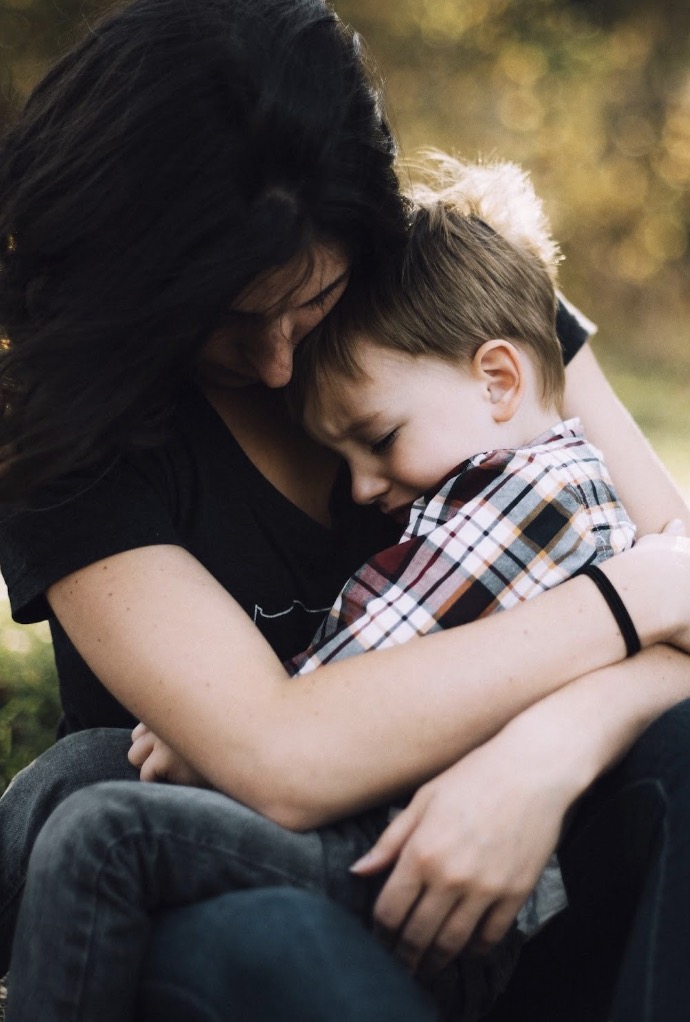Grief is an incredibly difficult emotion for adults to cope with, let alone children. It can be overwhelming and may leave wonderful youngsters feeling confused, scared, or isolated due to their lack of understanding of the concept of death.
While it’s hard for any adult to watch a child in pain over the loss of a loved one, we can make an effort to provide compassionate support that shows them they are not alone during this challenging time. Let’s explore how you can help kids who are grieving by offering comforting guidance and advice tailored to their age group.
Reader's Roadmap
Be open about death and cremation to your kids
As parents, it’s natural to want to protect our children from the harsh realities of life. However, death is an inevitable part of the human experience and it’s important to prepare our kids for it. Discussing death and cremation with children can be a daunting task, but with the right approach, it can become a meaningful conversation. Explain that a cremation service might be a better choice for the family and provide details about what this involves in an age-appropriate manner. When you’re open and honest with your kids about these topics, you are helping to create a healthy attitude towards grieving and loss that will serve them well throughout their lives.
Acknowledge the child’s feelings and validate them
Coping with grief can be a challenging time for anyone, but it’s especially tough for children who are just starting to understand the complex emotions that come with loss. As adults, it’s important to be patient and understanding when children are dealing with grief.
Acknowledge their feelings by validating them, and letting them know that it is okay to feel sad or angry. Creating an open environment where your child can openly express their emotions will help them better understand how to cope with the grieving process.
Encourage kids to share their memories
It’s often tempting to shield children from the pain we’re feeling. However, encouraging them to talk about the deceased and share their memories can be incredibly healing for both them and us.
Children have a unique perspective on life, and the stories they share can bring laughter, joy, and even comfort during an otherwise difficult time. When you create a safe and open space to talk about our loved ones who have passed, we can ensure their memories live on for generations to come.
Make sure the discussion is age-appropriate
The way we talk about death and grief with our kids should be appropriate to their age. A five-year-old’s understanding of death is going to be vastly different from that of a fifteen-year-old, so it’s important to adjust the conversation accordingly.
If you have multiple children in your family, remember that each of them requires a different approach. Tailor your conversations about death and grief to their understanding and provide as much clarity as possible. Additionally, it’s important to be honest with kids whether you don’t know the answer to a question they ask or if you feel overwhelmed yourself.
Comfort children by offering physical affection
As children grow and navigate the complex journey of life, they may encounter a wide range of emotions that can be difficult for them to process and express. Whether they’re feeling sad, scared, or overwhelmed, offering physical affection in the form of a hug or a pat on the back can be a powerful way to comfort them and communicate your love and support in times of grief. Physical touch can release oxytocin, a hormone associated with feelings of bonding and relaxation, which can ease a child’s stress and anxiety.
When a child is grieving, providing physical affection can help them feel safe and secure in your presence. Allow them to take the lead in terms of how much contact they want during this time and be sure to tell them you are there for them whenever they need you.
Encourage your kids to express themselves through creativity
There’s no one way to grieve, and some children may find it difficult to express their thoughts and feelings verbally. Writing, drawing, or playing music can be a great outlet for them to process their emotions in a healthy way.
Encouraging kids to write letters or create art in honor of the person they lost can be an incredibly healing experience. Besides giving them a chance to express themselves, it will also provide comfort in knowing that they can keep the memories of their loved ones alive.

Supporting a child who is experiencing grief is a delicate task, requiring patience, understanding, and love. By promoting an open dialogue, validating their feelings, encouraging the sharing of memories, and facilitating creative expression, we can offer compassionate support during this difficult journey.
Remember to keep conversations age-appropriate, provide physical comfort, and most importantly, show that they are not alone in their grief. The road to healing may be long, but together, we can navigate their path through loss, fostering resilience and healthy coping skills.







Leave a Reply
View Comments